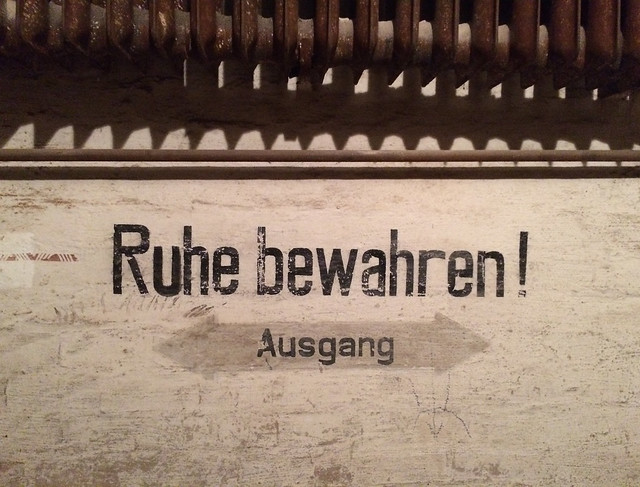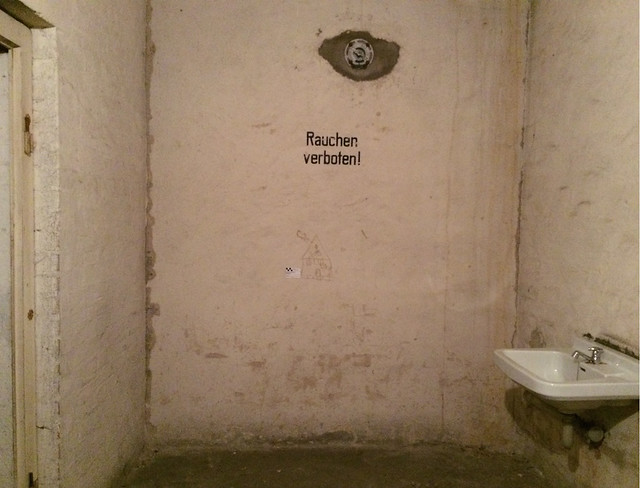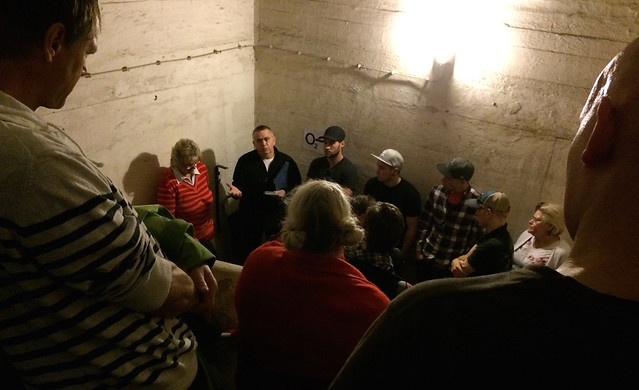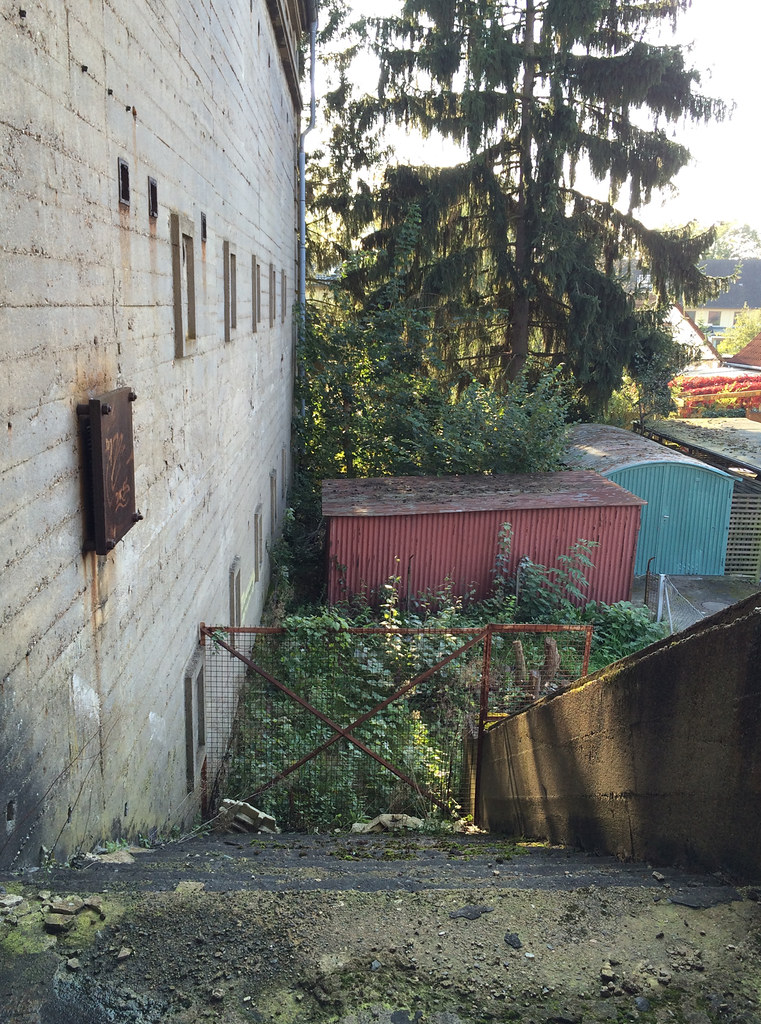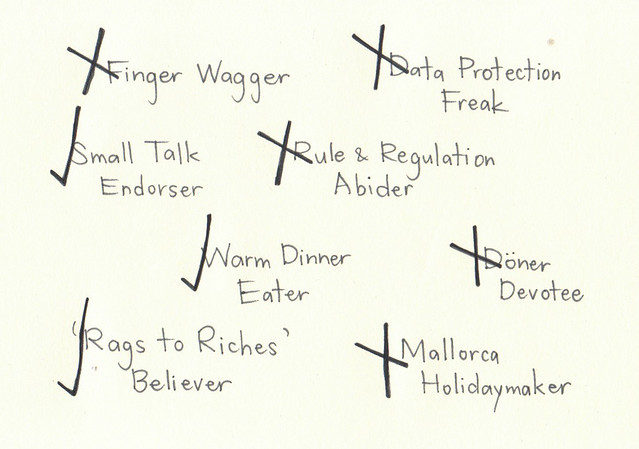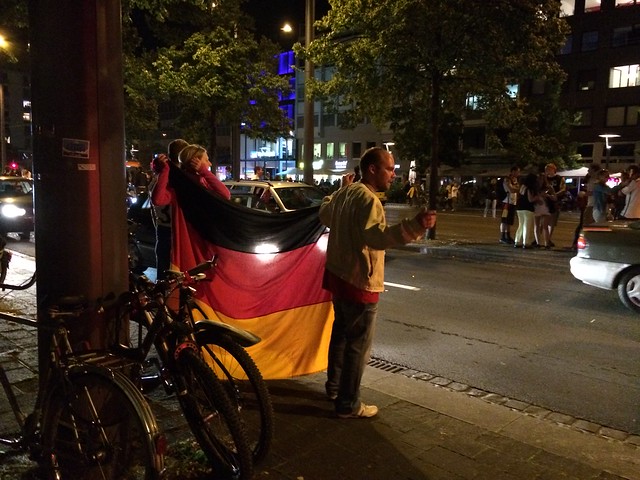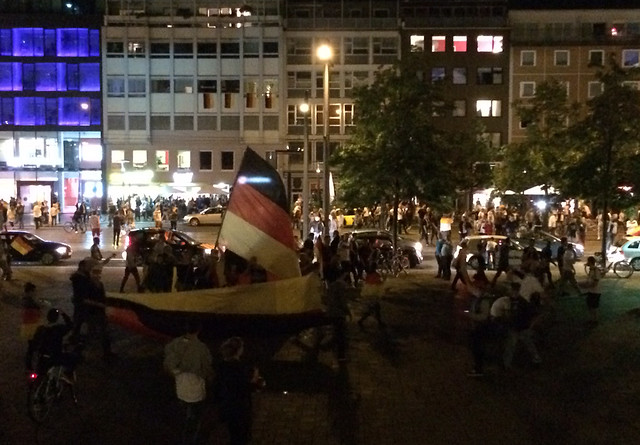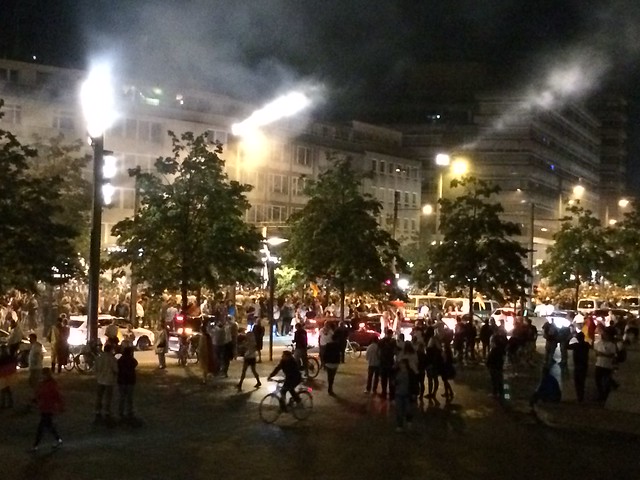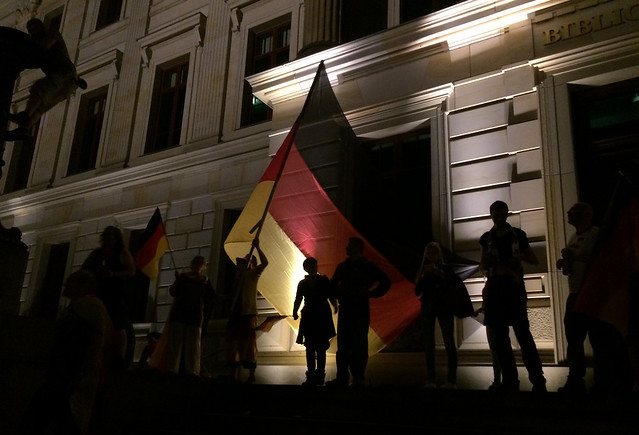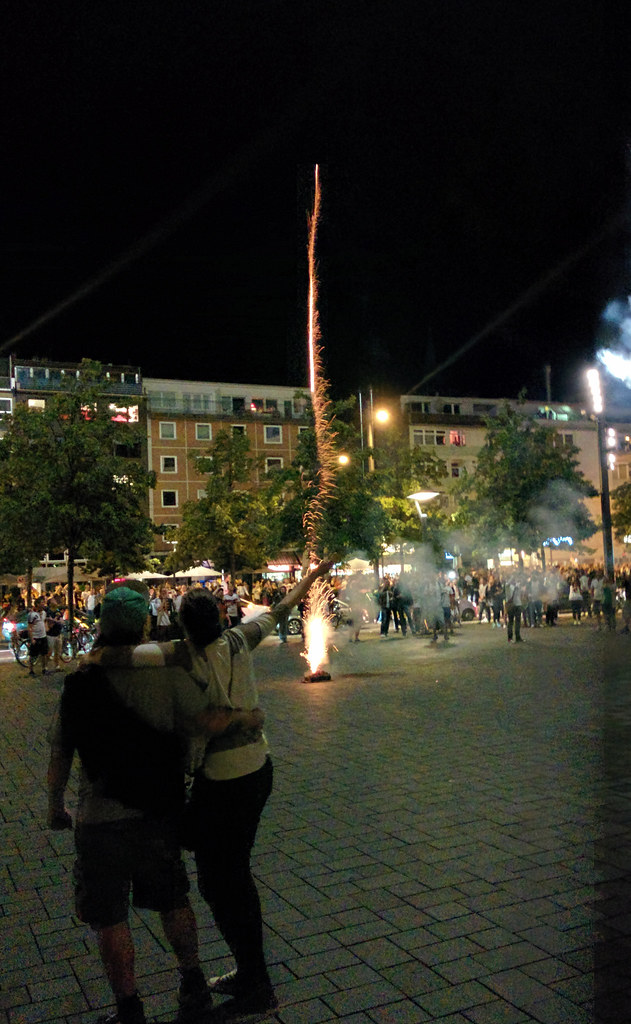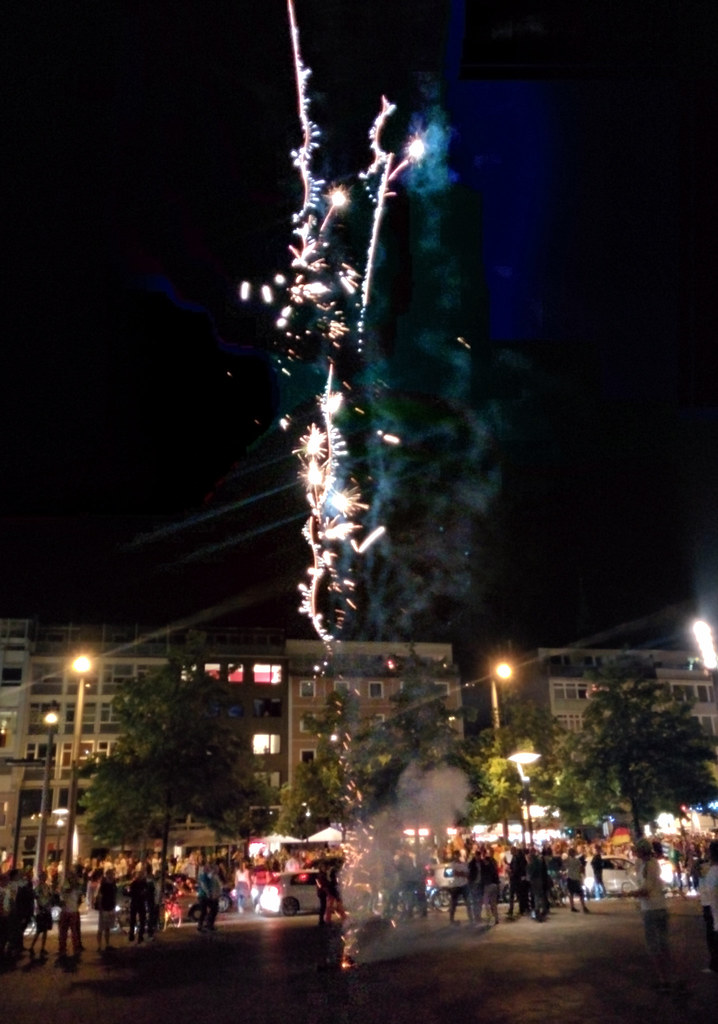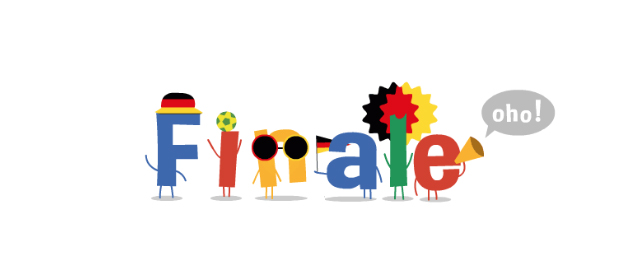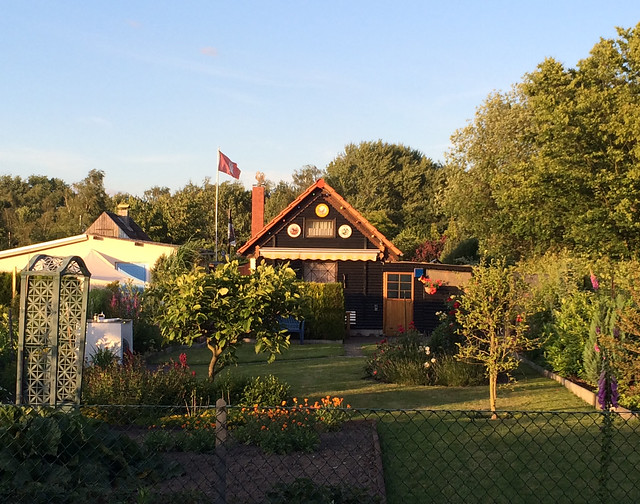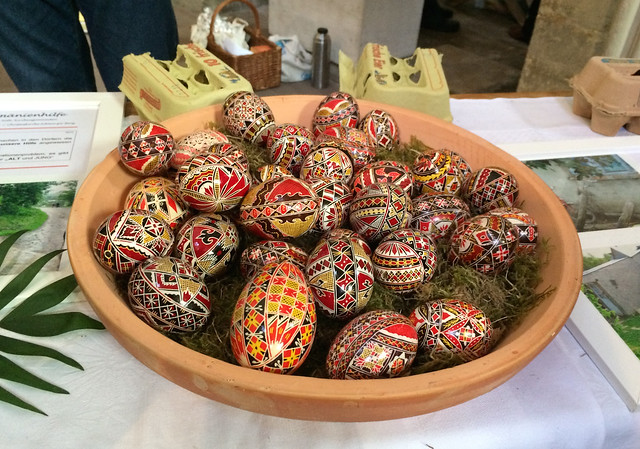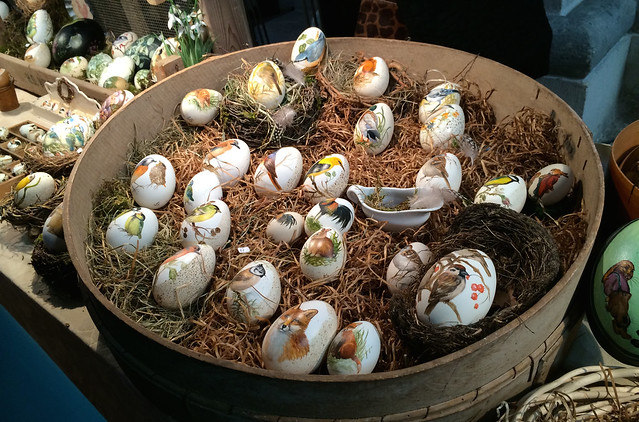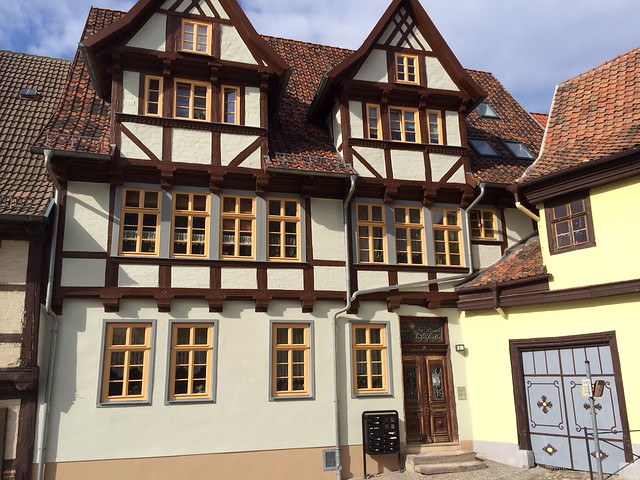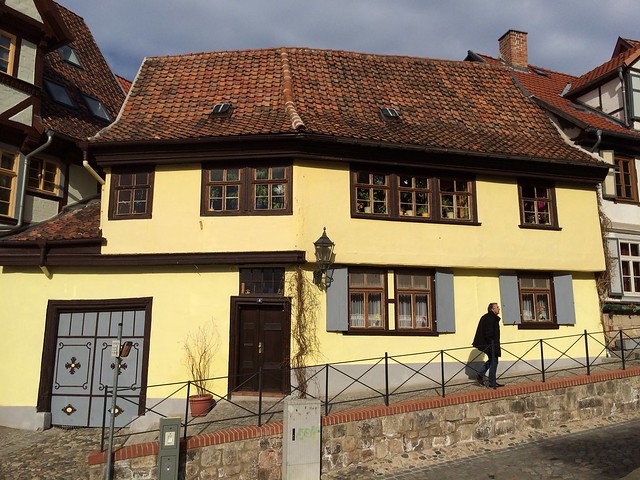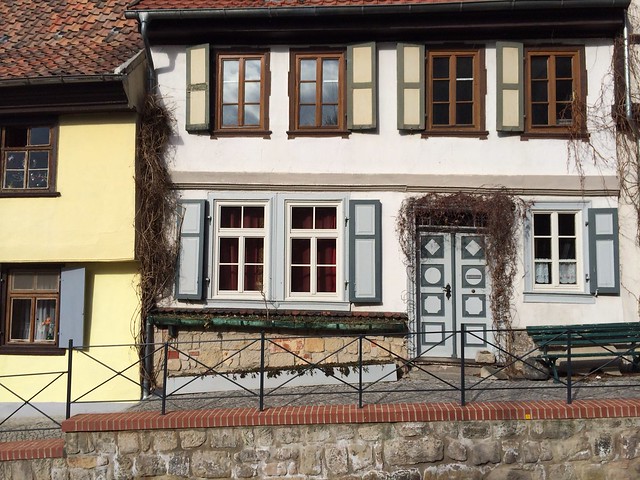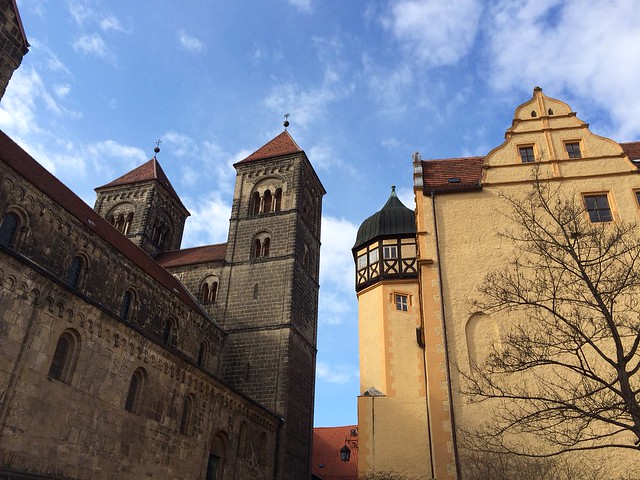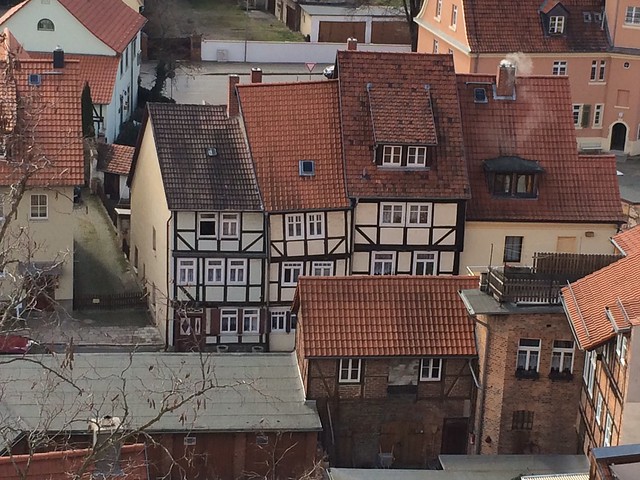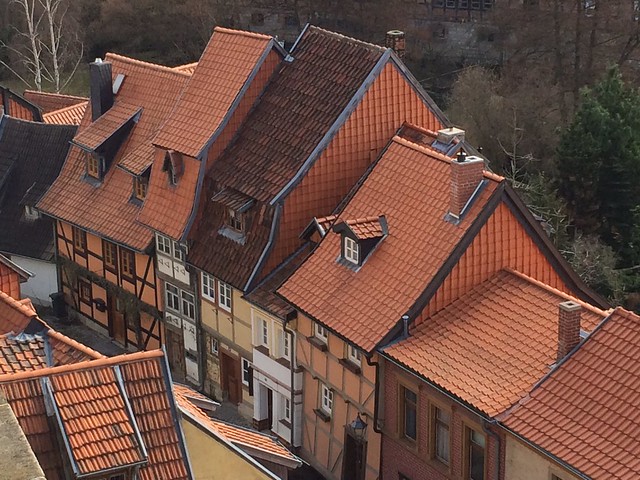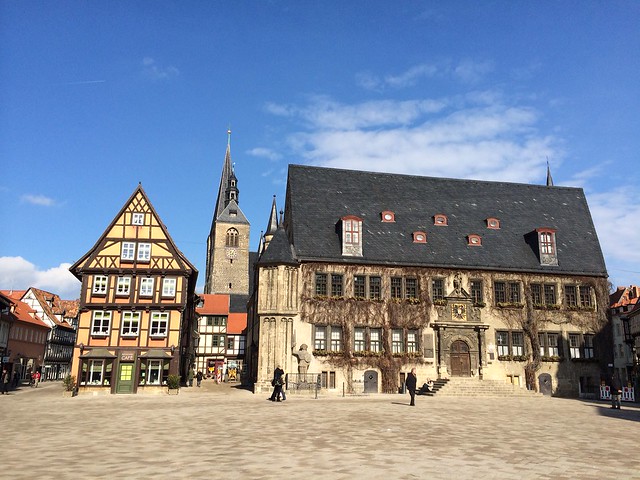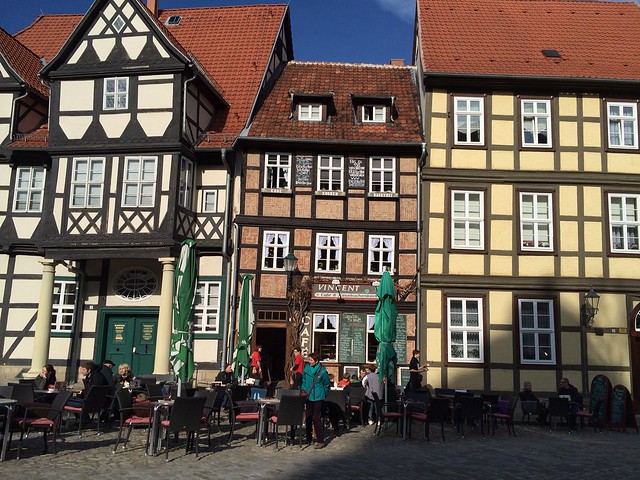After 2 1/2 years of teaching English in Germany, I’ve developed a good understanding as to why native German speakers make the mistakes they do when speaking English. Like any language learner naturally does, they tend to think in their native language first. The trick, however, is to do the exact opposite. This is because unfortunately, not all words and expressions can be directly translated from German into English.
Tipp: By making a conscious effort to think in the target language prior to speaking it, one-to-one translations can be avoided.
The following is a list I’ve compiled of the top 10 mistakes that Germans make in English due to the characteristics of their native language, be it a grammar, sentence structure or pronunciation matter. By thoroughly understanding the reasons why a German speaker makes the following mistakes, the student may focus on avoiding them and the teacher is able to make well-timed corrections accordingly.
 |
| Poor Angie! She didn't actually ask this question but she's the butt of our joke because 1. she's German and 2. everyone knows her. |
In German,
bis is used to express either
by or
until. So for example a typical sentence I often hear is, "My boss told me to finish this task until tomorrow." No. BY tomorrow. I tell my students to remember that
by means "not later than" and
until answers the question "How long...?" It's just one of those concepts one learns best by doing. In the language-learning world, this means speaking (lots of it).
9. Adjectives and Adverbs
Adverbs don't exist in German. Verbs can simply be described with adjectives. If one can fly
direkt to Japan and one can sing
perfekt, why bother with this
-ly business? Even the most advanced English learners struggle with adverbs and I presume because it's so hard to remember to tack on that
-ly where appropriate, particularly when dealing with complex words like precipitately or thwartedly.
8. What means ________?
You get this question every few lessons. But beware! Get used to hearing it and sooner or later you'll start saying it yourself. In German,
Was heißt ________? is used to ask someone what a word means. German speakers forget, however, that they need the helping verb
do in order to form a question in English.
What means 'awkward?' ✓What DOES 'awkward' mean?
7. Fahren (to drive)
Germans, as efficient and practical as they are, need only one verb,
fahren, to describe a million types of movement. In German, you can drive not only a car but also a boat, a train, a bike, a skateboard, a pair of skiis - you name it. Student: "I'm driving to Dresden next week." Me: "How long does it take to get there from Braunschweig?" Student: "If my train is punctual, 3 hours." *facepalm*
6. Since / for
Here's where it gets sort of tricky. In German, one could say
Ich lebe in Kanada seit 8 Jahren. One-to-one translation: I live in Canada since 8 years. Correct translation: I've lived in Canada
for 8 years. Now do you get why it's so confusing for German speakers? To make matters worse, one could also say
Vor fünf Jahren war ich in Australien. One-to-one translation: For five years was I in Australia. Correct translation: I was in Australia five years
ago. Ago =
vor and for =
seit.
5. Do / make
Hey, all you English teachers out there teaching German speakers! Don't deny it. When you first heard a student say "I'm going to make party this weekend," you chuckled out loud. You had to wipe that smirk off your face when another student said they "made a BBQ" last week, didn't you? As long as you correct them every time they
do a mistake, I guess you're forgiven.
4. "in the near from"
This particular mistake had to battle it out with 2nd and 3rd place because it's a phrase I hear not once, not twice, but five times a day. In German,
in der nähe von is an expression commonly used to describe how close a place is to another place. That's why German speakers cannot shake the habit of directly translating and saying something like "I live in the near from Berlin." Grr.
3. "We see us..."
Every time the lesson comes to an end and I'm saying bye to my students, someone blurts this out. Someone'll say, "We see us next week!" nanoseconds before I slyly sneak in an "each other" and give them a look that says you should know this by now. In German,
wir and
uns are allowed in the same sentence. In English,
we and
us are like oil and water; in the same sentence, they repel each other.
2. Person / people
I feel like English teachers in German elementary schools weren't/aren't doing their jobs properly because this is the one mistake Germans have ingrained in them that for the life of me cannot be undone. 1 = person. 1+ = people. The word persons may occasionally be seen on signs in elevators (e.g. Max 9 Persons) but it is not used in everyday spoken English. Germans likely think that since
Personen is plural in German, persons must be the correct translation. But what about the word
Leute?
1. Clo-thes
Forget squirrel or Porsche or WiFi. Clothes is the #1 English word that German speakers mispronounce. My theory is this: in German, every letter is pronounced the way it looks. Silent letters don't exist. What you see is what you get. This could be why Germans pronounce clothes as two syllables instead of one. The bf has another theory. He says Germans think that cloth is the singular form of clothes, hence the need to create a second syllable and say clo-
thes. Beats me.

